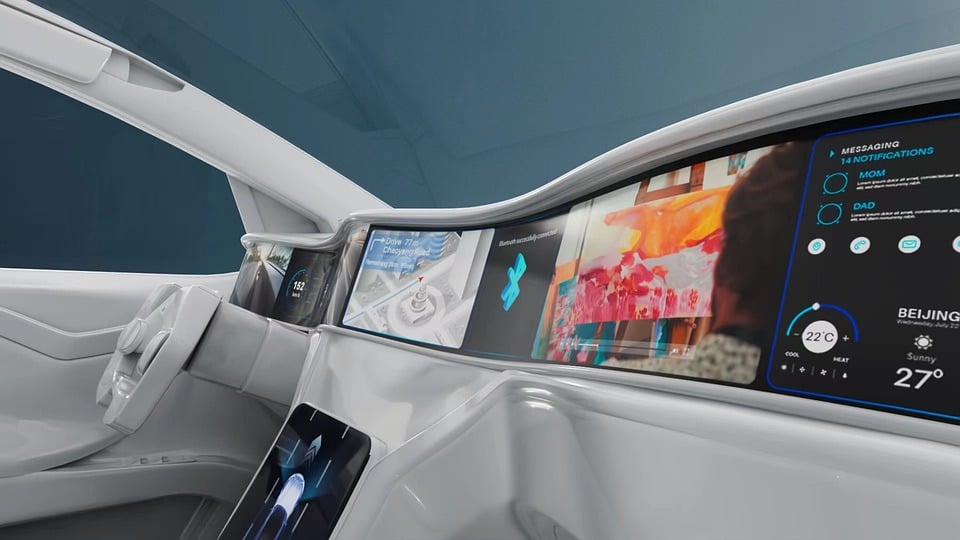
The manufacturing and automotive industries are undergoing a profound transformation, driven by the rapid adoption of cutting-edge technologies such as 5G, Internet of Things (IoT), Artificial Intelligence (AI) and cloud computing. These technologies, along with advanced automation solutions like the robot cell, are reshaping the way products are designed, manufactured and delivered, thereby unlocking new opportunities for innovation, efficiency and growth. As businesses navigate this dynamic landscape, it is crucial to understand the potential of these technologies and develop strategies to harness their power.
The Transformative Power of 5G in Industrial Automation and Robotics
5G technology is set to revolutionize industrial automation and robotics by providing enhanced connectivity and reduced latency. With its ability to support massive numbers of connected devices and enable real-time data transmission, 5G will facilitate the deployment of collaborative robots and seamless human-machine interaction. Imagine a future where staff and robots can work side by side, with the robots adapting to their human counterparts' needs in real time. This level of collaboration will significantly boost efficiency and productivity in manufacturing processes, allowing businesses to optimize their operations and stay ahead of the competition. The integration of 5G technology into industrial automation systems will also enable remote monitoring and control, empowering businesses to make data-driven decisions and respond quickly to changing market demands.
By embracing 5G, manufacturers can unlock new levels of flexibility, agility and competitiveness in an increasingly complex and fast-paced business environment. For instance, a modern robot cell equipped with 5G connectivity can seamlessly communicate with other devices and systems, enabling real-time adjustments and optimizations to improve overall performance. To stay up to date and gain knowledge, it's an excellent idea to visit conferences and expos offered by a variety of ingenious companies.
IoT: A Catalyst for Supply Chain Optimization in Manufacturing
The Internet of Things (IoT) is transforming supply chain management in the manufacturing sector, enabling real-time visibility, predictive maintenance and improved efficiency. By connecting devices, sensors and machines across the supply chain, IoT technology allows businesses to track and monitor inventory levels, equipment performance and logistics. This enhanced visibility empowers manufacturers to optimize their processes, reduce waste and minimize downtime. With predictive maintenance capabilities, businesses can proactively identify potential issues before they escalate, ensuring smooth operations and reducing costs associated with unplanned downtime. IoT also facilitates improved collaboration and data sharing among supply chain partners, fostering trust, transparency and agility in an increasingly complex and global business environment.
AI-driven Innovation in the Automotive Industry
Artificial Intelligence (AI) is driving a wave of innovation in the automotive industry, from autonomous driving technology to personalized in-vehicle experiences. AI-powered algorithms and machine learning techniques are enabling the development of advanced driver assistance systems (ADAS) and self-driving vehicles, promising a future of safer, more efficient and more sustainable transportation. AI is also being leveraged to optimize vehicle design and manufacturing processes, allowing automakers to create more efficient and high-performance vehicles. By analyzing vast amounts of data from connected vehicles and manufacturing systems, AI can help identify patterns, predict maintenance needs and improve overall vehicle performance. Moreover, AI is enabling the creation of personalized in-vehicle experiences, with intelligent virtual assistants, infotainment systems and connected car services that adapt to individual preferences and needs.
Harnessing the Potential of Cloud Computing in Industrial Data Management
Cloud computing is transforming data management in industrial settings, by providing scalable, flexible and secure solutions for storing, processing and analyzing vast amounts of data. By leveraging cloud-based platforms, manufacturers can easily scale their data storage and computing resources to meet evolving business needs, without the burden of maintaining extensive on-premise infrastructure. Cloud computing also enables real-time data analysis and insights, empowering businesses to make informed decisions based on topical information. Moreover, cloud-based solutions facilitate collaboration and data sharing across the enterprise, breaking down silos and fostering innovation. As the volume and complexity of industrial data continue to grow, cloud computing will play an increasingly crucial role in helping businesses harness the power of their data while ensuring security and compliance.
